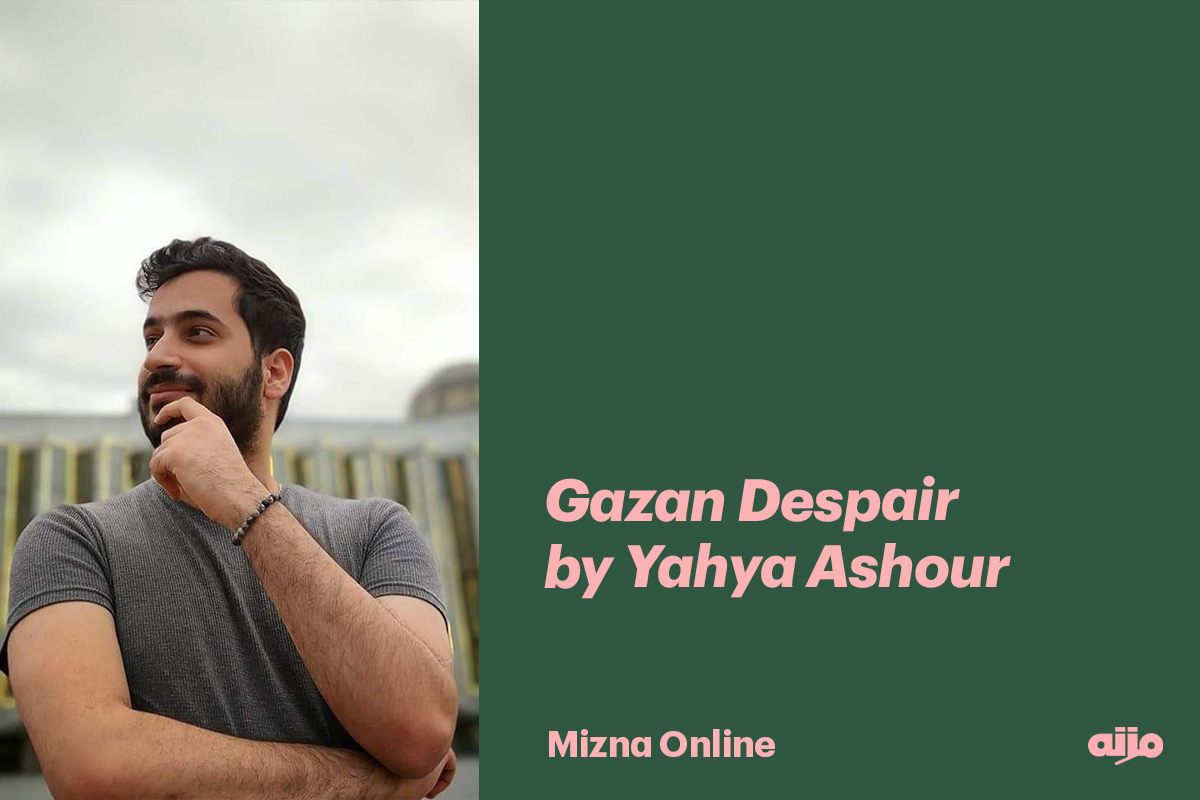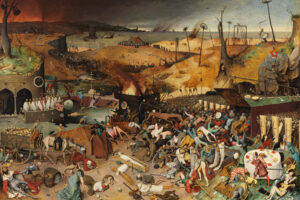
October 3, 2024
Gazan Despair
This poem is published as part of Mizna 25.1: Catastrophe Issue. Link to order here.
A year ago, Gazan poet Yahya Ashour left his home to come to the United States for the literary conference Palestine Writes. Yahya has been exiled in the US ever since, waiting for the genocidal war to come to an end. In the year since then, Yahya wonders what is there left to say but “Gazan Despair”?
Ashour is currently a fellow at Mizna, and we have published his debut book online, A Gaza of Siege & Genocide. Proceeds of book sales as well as the sale of other items go directly to supporting Ashour and his family who are trying to survive genocide in Gaza. Links below:
+ A Gaza of Siege & Genocide
+ Sumud letterpress print
+ From the River to the Sea letterpress print
+ It Matters letterpress print
—Nour Eldin H., assistant editor
Gazan Despair
Dear sky,
where were you
when our homes were being
bombed?
Dear sea, where were you
when our bodies were being
charred?

Yahya Ashour | يحيى عاشور is an exiled Gazan poet and awarded author, born on April 22, 1998, based in the US. He is a Mizna fellow and an honorary fellow at the University of Iowa and the author of the ebook A Gaza of Siege & Genocide (Mizna, 2024). Ashour’s portfolio also includes poetry collections, children’s books in Arabic, and contributions to global anthologies and journals, including MQR and ArabLit. He has received multiple scholarships and fellowships and has read poetry at more than fifty U.S. organizations and universities, including Princeton, Stanford, University of Pennsylvania, and UCLA. His poetry has been translated into several languages, including Spanish, French, Japanese, and Bengali. Ashour studied sociology & psychology and he has worked as a creative writing mentor.

Toward a Free Palestine: Resources to Learn About and Act for Palestine
We are proud to present this text as part of a list of resources to take action for and learn about Palestine, as well as works by Palestinian artists, writers, activists, and cultural workers.












